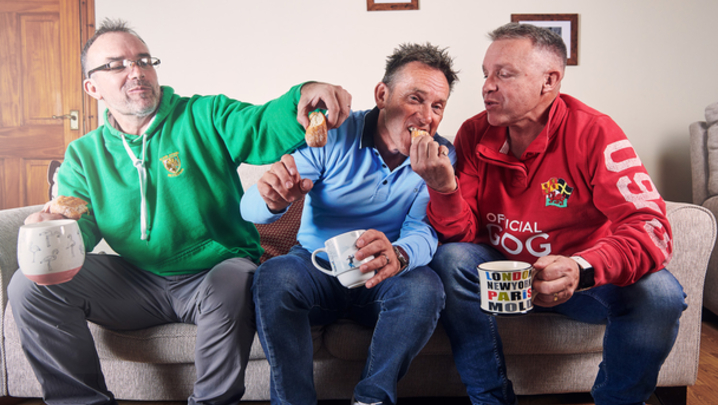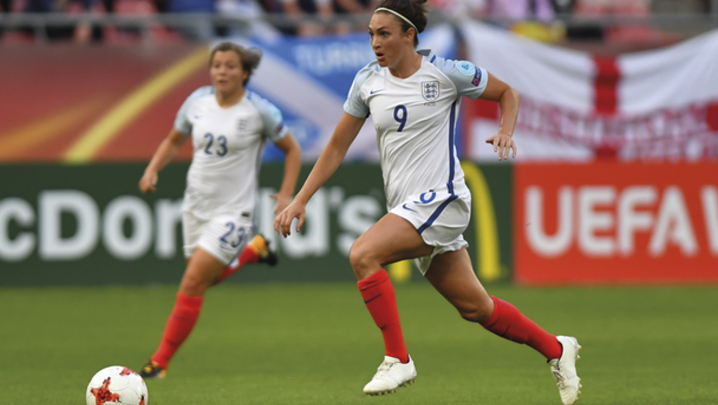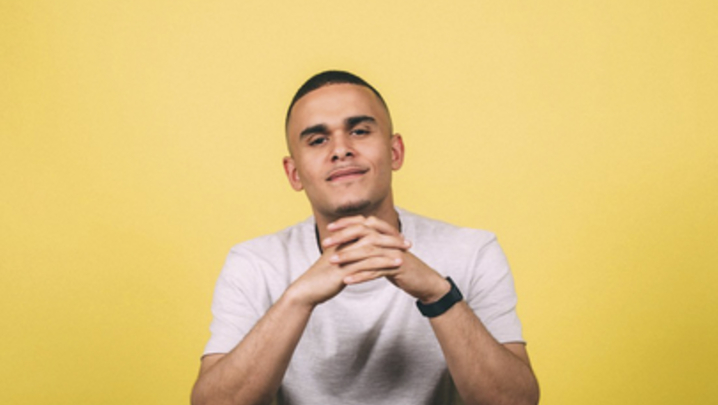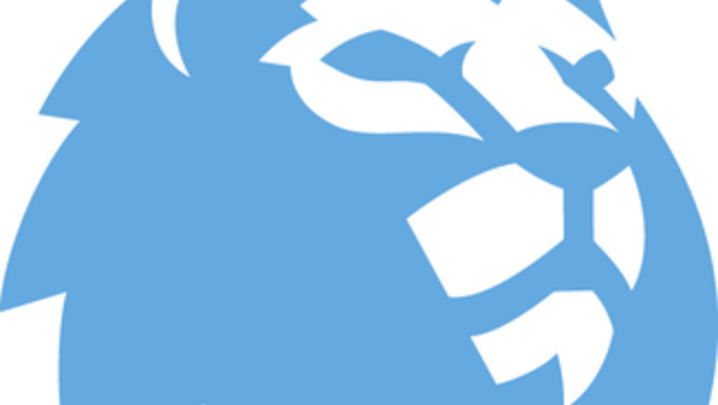Matthew Bell explains how broadcasters are covering the Euros, which kick off this month.
The Euros is a football tournament like no other before it.
Delayed a year by the pandemic and rerouted to multiple venues around Europe, it will be – at best – problematic, and, in some cases, impossible for fans to follow their teams. The UK broadcasters covering the tournament – with games split between the BBC and ITV – face the same difficulties.
The tournament takes place at 11 venues– Amsterdam, Baku, Bucharest, Budapest, Copenhagen, Glasgow (Hampden Park), London (Wembley), Munich, Rome, Seville and St Petersburg. Football governing body Uefa has stipulated that all must admit spectators, which will bring some much-needed crowd atmosphere to the TV coverage.
Anyone still harbouring any doubts about the importance of fans to live football clearly didn’t see Leicester City’s boisterous supporters shout their team to FA Cup victory last month.
Back in 2012, Uefa decided to spread the tournament around Europe to alleviate the crippling financial demands on single host nations – long before coronavirus messed everything up.
BBC TV football executive producer Phil Bigwood is in charge of the corporation’s Euros coverage, as he has been at every major international football tournament since the 2002 World Cup. “I’ve never known one like this, with all these complications and challenges – it is massively different to anything I’ve done before,” he said, pointing to the pan-European structure of the tournament, which multiplies “the logistical and technical” difficulties.
Last-minute changes to some venues – with Seville stepping in for Bilbao and Dublin’s matches moved to Wembley and St Petersburg – and working under differing Covid-19 protocols across venues, have added extra layers of complexity.
The good news, though, is that the BBC is sending commentators and production staff to all the venues hosting the home nations: Wembley (for England), Hampden Park (Scotland) and, ambitiously, Baku (Wales).
Wales’s opening two games in the Azerbaijan capital are being broadcast by the BBC, with the corporation also sending a team to preview and report on the principality’s clash with Italy in Rome, which is being shown by ITV.
Commentator Steve Wilson and co-commentator Robbie Savage are flying to Baku with a small “OB-light” production team consisting of some eight people. “Steve will also be doing some reporting and interviewing,” says Bigwood. “We’ve got to keep people travelling to a minimum because the levels of paperwork required are off the scale.”
With few direct flights to Baku – and many of the normal transit stops in countries on the UK Government’s red Covid list – even getting the team to Azerbaijan has proved problematic. A stopover in Kiev or Moscow was the current plan as Television went to press.
Match coverage itself comes from production teams dispatched by Uefa to each venue, with the BBC supplementing the home nations’ games with pitch-side reports and interviews. The live feed from matches is being sent to the International Broadcast Centre in Haarlem, outside Amsterdam – where the BBC will also have a small team – and then to Salford.
Thanks to Covid-19, the home nations matches aside, production will be remote from MediaCity, where the BBC has built two off-television areas to allow commentary from a big screen. Such coverage has become normal during the pandemic, but it does restrict the ability of the commentary team – who are denied a live, 360° view of the pitch – to tell the full story of a match as it unfolds.
The BBC faces a challenging first weekend. “We have to hit the ground running because we’ve got the opening game on the Friday [Italy vs Turkey], Wales on the Saturday, England on the Sunday and Scotland on Monday. We’ve got to get over that initial mad period and hope it will then start to calm down a little bit,” says Bigwood. “But we’ll get there – it’s going to be a brilliant tournament.”
ITV, which will exclusively show 27 live games, has bagged the much-anticipated England vs Scotland clash at Wembley, as well as the showdown between world champions France and Germany. It was still unsure whether it could send commentary teams to games in mainland Europe when this article was written.
“Euro 2020 is a tournament unlike any other,” says Niall Sloane, ITV director of sport. “ITV has brought together a uniquely talented team from across football that will offer viewers and fans compelling insight and entertainment that, we hope, will enrich their enjoyment of what promises to be a very special few weeks.”
Even if the quality of the football fails to shine, the Euros still have novelty value. Thanks to the pandemic, it is the first major tournament to air on British TV since 2019’s Rugby World Cup – and it will offer much-needed revenue to the commercial broadcaster. The price of a 30-second ad slot on ITV could rise to £200,000 for matches involving England, Scotland and Wales.
Big games later in the tournament – assuming any of the home nations survive – guarantee huge audiences. England’s defeat by Croatia in the 2018 World Cup semi-final drew a peak audience of 26.5 million to ITV.
Now all the broadcasters need is one of the home nations, preferably Gareth Southgate’s team, given England’s large population, to reach the final. “Cry ‘God for Harry Kane, England, and Saint George!”’ as Shakespeare almost said.
It’s a game of two broadcasters
The Euros are a marathon, not a sprint, for the armchair spectator, with 51 games broadcast live over a month, beginning with the Italy vs Turkey clash in Rome on 11 June.
Away from the action on the pitch, both BBC and ITV are offering plenty of punditry and support programming. ITV’s pundits promise plenty of bite, with gnarled hard men Roy Keane, Patrick Vieira, Nigel de Jong and, on loan signings from Sky Sports, Graeme Souness and Gary Neville, giving the team a terrifying backbone.
The effervescent Ian Wright vacates his BBC One Match of the Day seat for the tournament, and is joined by ex-pro Eni Aluko and Chelsea women manager Emma Hayes.
Mark Pougatch and Seema Jaswal, veterans of ITV’s Russia World Cup in 2018, are the main presenters. Its commentary team, led by Sam Matterface – who replaces the long-serving Clive Tyldesley – will be assisted by Lee Dixon, Ally McCoist and John Hartson. Former ref Peter Walton, on loan from BT Sport, will explain contentious decisions.
We should be grateful for the return of McCoist, the best co-commentator at the 2018 World Cup, where his enthusiasm for, and knowledge of, all things foreign was in marked contrast to the parochialism of many ex-pros employed by TV.
For the BBC, main presenters Gary Lineker and Gabby Logan will be managing a team of former internationals Alan Shearer, Rio Ferdinand, Alex Scott and Micah Richards (England); Ashley Williams and Mark Hughes (Wales); and James McFadden, Shelley Kerr and Charlie Adam (Scotland). Bringing some fancy continental footwork to the MediaCity UK studio are Thierry Henry, Cesc Fabregas and Jurgen Klinsmann.
Guy Mowbray heads the commentary team with co-comms from the familiar likes of Dion Dublin, Karen Carney, Jermaine Jenas and Robbie Savage.
The matches have been divvied up between the two broadcasters, with both showing the final from Wembley on 11 July. To fill the gaps between the live-action, ITV is offering The Euros Daily Show and Three Lions Raw, which promises “no-filter access highlights” of England games.
For the corporation, Crouchy’s Year-Late Euros features the lanky, former England striker alongside Maya Jama and Alex (Taskmaster) Horne on BBC One, while BBC Three follows UK hip-hop duo Krept and Konan as they create a new England football anthem for the Euros with the help of England player and manager Gareth Southgate.
Scotland’s last appearance at a major tournament, France 1998, is celebrated by BBC One Scotland in Mr Brown’s Boys, while comedian Elis James presents Football Nation on BBC One Wales, a series covering the highs and lows of Welsh football.






